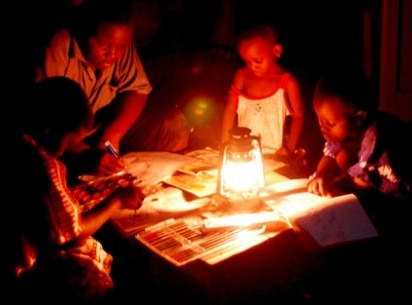Power crisis of 2012/2015 had huge negative effect on Ghana – study
 The power crisis of 2012-2015 had a huge negative effect on manufacturing firms in Ghana, a study by the Institute of Statistical, Social and Economic Research (ISSER) of the University of Ghana has revealed.
The power crisis of 2012-2015 had a huge negative effect on manufacturing firms in Ghana, a study by the Institute of Statistical, Social and Economic Research (ISSER) of the University of Ghana has revealed.
According to the study, reduction in labour productivity and total factor productivity was one of the main channels through which the negative impact of the crisis was felt.
The study, which was launched on Wednesday in Accra, suggest that reducing the number of days in a month with outages from the average of about 10 in Ghana to zero, had the potential to increase productivity by 10 per cent; “while substantial, this is an underestimate of the full cost of the power crisis on these firms”.
The study dubbed “How did the 2012-2015 power crisis affect small and medium manufacturing firms in Ghana?” was funded by the International Growth Centre Ghana.
The researchers were Dr Charles Ackah, Research Fellow, ISSER, University of Ghana; Dr Patrick Asuming, Lecturer at the University of Ghana Business School; and Professor Ama Baafra Abeberese of Wellesley College.
The study analysed the impact of Ghana’s 2012-2015 power crisis on the productivity of small and medium manufacturing firms.
It sought answers to questions such as “How did the energy crisis affect the productivity of manufacturing firms? How large was this effect if any? And how did the energy crisis affect employment in manufacturing?”
Others are what strategies did firms adopt to cope with the energy crisis and how effective were these strategies? And are firms willing to pay more to avert power outages and if so, how much more?”
It found that firms’ coping strategies – such as using generators – were ineffective in reducing the negative impact of outages on productivity.
Dr Ackah said the study surveyed small and medium-sized manufacturing firms in Ghana in August and September 2016; adding that the survey collected firm-level data from 2011 to 2015.
“Using the first phase of the Integrated Business Establishment Survey (IBES phase I) as a sampling frame, we selected all small and medium-sized manufacturing firms located in the four main industrial clusters in the country – Accra, Tema, Kumasi, and Sekondi/Takoradi,” he said.
“Of the 1,244 eligible firms, we surveyed 885 firms. Of the remaining 359 firms, 73 refused to participate in the survey, 55 had folded up at the time of the survey, and 231 could not be located using the contact information from the Ghana Statistical Service,” he stated.
He said the survey collected information on the characteristics of the firms, production, employment, capital, investment, raw materials, electricity consumption and generation, and financing.
According to the study findings surviving firms did not cope with the crisis by laying off workers, they used less of other inputs – less raw materials and underutilisation of install capacity; however, this does not mean that the crisis did not lead to job losses.
It indicated that 4.4 per cent of eligible firms had folded-up in the six months between the completion of the first round of the IBES and the field data collection for this study.
It revealed that in addition, another 18.5 per cent of eligible firms could not be located; while it does not have information to attribute these exits to the power cuts, it was likely to be at least a contributing factor.
Dr Asuming said: “We find that as long as there will be a stable and reliable electricity supply, firms were willing to pay up to 12.6 per cent more for uninterrupted power supply”.
He explained that this should not be misinterpreted that firms want to pay for high cost of electricity and that the reason was that the cost of generating electricity internally was very high for firms.
The study recommended that key investments in generation, production, and distribution infrastructure were made to improve the reliability of power supply through the national grid, even if it means raising electricity tariffs.
Prof Robert Osei of ISSER and the Vice Dean of the School of Graduate Studies, University of Ghana, said to create jobs for the teeming unemployed youth of the country, there was the need to look at power generation.
Dr A. K. Ofosu Ahenkorah, the Executive Secretary of the Energy Commission, who chaired the event, said energy was the commodity which was needed for the socioeconomic development of every nation.
He said in order to facilitate the nation’s socioeconomic development; electricity must be available, reliable, affordable and sustainable.
Dr Nii Darko Asante, Technical Director, Energy Commission, commended ISSER for coming out with the research findings, which would go a long way to guide policy makers.
Source: GNA
